AACR Annual Meeting 2025
McCormick Place Convention Center, Chicago, Illinois
April 25, 2025 - April 30, 2025The AACR Annual Meeting highlighted the best cancer science and medicine from institutions all over the world. At the event, we hosted a Customer Appreciation Event, Exhibitor Spotlight Theater, and 6 poster presentations showcasing how our ThawReady™ Assay Ready Cells and 3-D Spheroid Kits, patient-derived organoids, and reporter-labeled models can help streamline your assays and enhance your oncology studies. If you missed us at booth #1109 and have a question about our innovative cell models, please feel free to contact us.
Customer appreciation event Exhibitor Spotlight Theater Posters
Thank you for attending our Customer Appreciation Event
ATCC is immensely grateful for your support as we enter our next 100 years of serving the scientific community. To show appreciation to our customers, we hosted a night out at Fatpour Tap Works during the AACR 2025 event. We would like to thank everyone who attended—it was wonderful having you with us for such a special and engaging gathering!
If you are interested in learning more about our centennial celebrations and the remarkable journey we’ve taken together, please visit our Centennial page. Thanks to your support, we’ve achieved so much over the past century, and the future holds even more exciting possibilities.
Learn more about our legacy
Check out our Exhibitor Spotlight Theater
Transforming Oncology: ATCC’s Cutting-Edge Patient-Derived Models
In this presentation, we discussed the importance of biologically relevant models for the development of new cancer therapeutics and showcased how next-generation cancer models from the Human Cancer Models Initiative are paving the way for a new understanding in the pathogenetic mechanisms of multiple cancers.
Presenters:
Dr. Carolina Lucchesi, Principal Scientist, Microphysiological Systems, ATCC
Dr. Fang Tian, Director of Biological Content, ATCC
Dr. Jesse Boehm, Chief Science Officer, Break Through Cancer
Dr. Andrew McPherson, Computational Oncologist, Memorial Sloan Kettering Cancer Center
Date: Tuesday, April 29, 2025
Time: 12:30 – 1:30 PM
Location: Theater E
This Exhibitor Spotlight Theater was a promotional activity and was not approved for continuing education credit. The content of this Exhibitor Spotlight Theater and opinions expressed by presenters are those of the sponsor or presenter and are not of the American Association for Cancer Research® (AACR).
Meet the presenters
Carolina Lucchesi, PhD
Principal Scientist, BioNexus, ATCC
Carolina Lucchesi is BioNexus Foundation Principal Scientist leading the Microphysiological Systems program at ATCC. Dr. Lucchesi received her PhD in Cellular and Molecular Biology from the University of Campinas in Brazil and has over 20 years of experience in Tissue Engineering and Organ-on-Chip technology. In her current role, Dr. Lucchesi leads the MPS program bringing new capabilities in the use of advanced 3D models and developing existing and new content to be applied in state-of-art technologies.
Fang Tian, PhD
Director, Biological Content, ATCC
Dr. Fang Tian, Director of Biological Content for ATCC, has extensive experience in cell biology and molecular biology. She oversees human, animal cell lines and hybridomas, and product development in the Cell Biology General Collection at ATCC. Dr. Tian was a research fellow in Massachusetts General Hospital, Harvard Medical School. She conducted postdoctoral research at the Hillman Cancer Institute of UPMC.
Jesse Boehm, PhD
Chief Science Officer, Break Through Cancer
Jesse Boehm is the Chief Science Officer of Break Through Cancer and maintains a research lab focused on bringing the power of functional genomics to bear on living samples from cancer patients with particular emphasis on rare and underrepresented tumors. Before joining Break Through Cancer, Jesse spent 14 years in the Broad Institute’s Cancer Program, most recently as an Institute Scientist and Scientific Director of the Cancer Dependency Map project. As the Director of the Broad’s Cancer Model Development Center (part of the National Cancer Institute’s Human Cancer Models Initiative), he led his laboratory in developing a scalable capacity to convert patient tumors into organoids and other cell models. Prior, he was the recipient of a Broad Institute Merkin Fellowship and the Associate Director of the Broad’s Cancer Program. In these leadership roles, he drove the scientific planning and strategic execution of a diverse set of program projects, collaborations, and activities for over a decade. Jesse received his BS in biology from MIT and his PhD from Harvard University, Division of Medical Sciences at Dana-Farber Cancer Institute.
Andrew McPherson, PhD
Assistant Attending, Computational Oncologist, Memorial Sloan Kettering Cancer Center
Andrew McPherson is an Assistant Attending Computational Oncologist in the Department of Epidemiology and Biostatistics and a faculty member of Computational Oncology. Andrew’s research focuses on computational methods for analysis of single cell genomic data, with specific focus on understanding genomic instability, mutational processes, clonal evolution and the role of the microenvironment in cancer development and progression. During his doctoral research, Dr. McPherson developed methods for cancer genome sequence analysis, including detection and characterization of genome rearrangements, and inference of clonal phylogenies. Dr. McPhersons post-doctoral research at University of British Columbia focused on the development of computational methods and infrastructure for a novel single cell whole genome sequencing (scWGS) platform, Direct Library Preparation. During his time at MSKCC, Dr. McPherson has led efforts to establish a production implementation of scWGS via DLP within MSKCC, and support use of the platform through collaborations with investigators throughout the institute. In addition, Dr. McPherson has contributed to several large scale single cell genomics studies of Breast and Ovarian cancer.
Get a copy of our posters
Navigating next-generation pre-clinical models of drug discovery & development with RNA-seq
Presenter: Ajeet Singh, PhD
Date: April 27, 2025, from 2:00 PM – 5:00 PM
Poster board: 8 (Abstract #1068)
New emerging patients-derived circulating tumor cells (CTCs) as promising tools for cancer research
Presenter: Paul Lovell, PhD, Associate Scientist, ATCC
Date: April 28, 2025, from 9:00 AM- 12:00 PM
Poster board: 3 (Abstract #1935)
Assessing large-scale CAR-T cell cytotoxicity ex vivo using 2-D and 3-D multimodal imaging techniques for industrial standards
Presenter: John Foulke, MS, Lead Biologist, ATCC
Date: April 28, 2025, from 2:00 PM – 5:00 PM
Poster board: 15 (Abstract #3187)
GAS-Luc2 reporter cancer cell lines demonstrating superior performance to the industrial standard interferon-gamma ELISA in 2-D and 3-D ex vivo immune activation and drug screening
Presenter: Hyeyoun Chang, PhD, Senior Scientist, ATCC
Date: April 29, 2025, from 9:00 AM- 12:00 PM
Poster board: 3 (Abstract #3959)
Clinical, molecular, and functional characterization of a diverse collection of patient-derived colorectal cancer organoids from the Human Cancer Models Initiative
Presenter: Matthew Graziano, BS, Biologist, ATCC
Date: April 29, 2025, from 2:00 PM – 5:00 PM
Poster board: 17 (Abstract #5202)
Engineered signaling reporter immune cell lines for monitoring immune activation and multidirectional interactions among cancer cells, immune cells, and tumor microenvironmental cells
Presenter: Hyeyoun Chang, PhD, Senior Scientist, ATCC
Date: April 29, 2025, from 2:00 PM – 5:00 PM
Poster board: 13 (Abstract #5225)
Explore our featured products
ThawReady™ Assay Ready Cells
Cell-based assays have lengthy timelines due to the requirement of cell expansion processes to get a synchronized cell stock. To speed your timelines while providing you with the consistency you need, ATCC developed ThawReady™ cells. ATCC ThawReady™ products will streamline your workflows by months, allowing you to focus on advancing drug discovery and development.
Explore ThawReady™ Assay Ready CellsThawReady™ 3-D Spheroid Kits
Generating spheroids for drug development comes with inconsistent results and resource-intensive processes. ThawReady™ spheroids eliminate these hurdles by providing pre-plated, cryopreserved 3-D tumor spheroids that are ready to use right out of the freezer. This ready-to-use format allows you to quickly and easily test lead compounds, saving you valuable time and resources.
Explore ThawReady™ 3-D Spheroid KitsDiscover patient-derived cancer models
HCMI cell models
We are continually adding 2-D and 3-D patient-derived cancer models to our portfolio. These next-generation models include both common as well as rare and understudied examples of cancer from numerous tissues.
Organoids made easy
ATCC Organoid Growth Kits make it easy to subculture and grow your patient-derived organoids. Simply add the contents of the kit into your basal medium and conditioned medium, and you’re ready to feed your organoids!
Download a PDF of our featured literature
ThawReady™ Assay Ready Cells
Eliminate lengthy cell expansion protocols with ThawReady™ Assay Ready Cells. Go from frozen to data in one day!
MoreThawReady™ 3-D Spheroid Kits
ThawReady™ 3-D Spheroid Kits provide a simple, convenient method for generating uniform 3-D tumor spheroids for high-throughput workflows.
More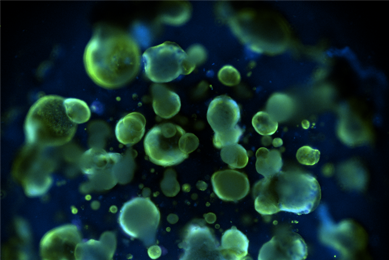 Brochure
Brochure
Human Cancer Models Initiative (HCMI)
ATCC offers a growing collection of models generated by the HCMI, which will include both common as well as rare and understudied examples of cancer from numerous tissues
More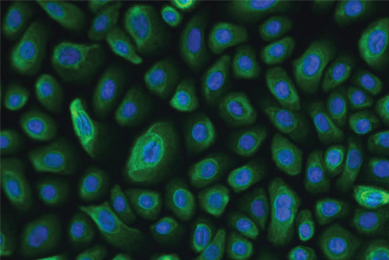 Brochure
Brochure
hTERT-immortalized Primary Cells
Enjoy the best of all worlds with human telomerase reverse transcriptase (hTERT)-immortalized Primary Cells from ATCC.
More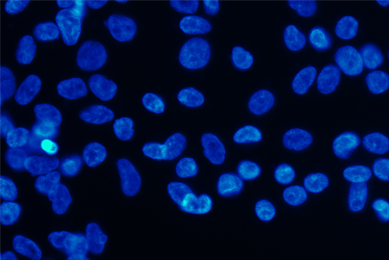 Brochure
Brochure
Cell Lines by Gene Mutation
This guide organizes our ATCC tumor cell lines according to gene of interest and provides information for each line about the specific mutation.
More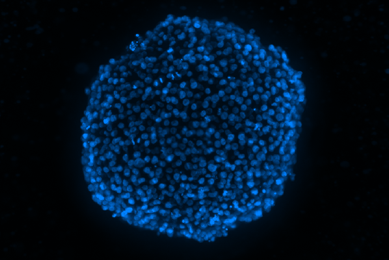 Brochure
Brochure
Isogenic Cell Lines
With genome editing tools such as CRISPR/Cas9, ATCC has created isogenic cell lines with mutants of key oncogenes, which are ideal for identifying novel, personalized treatment regimens. Explore our resources.
More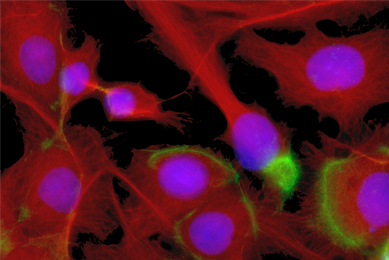 Brochure
Brochure
Tumor/Normal Matched Cell Line Pairs
Tumor-derived cell lines matched to either normal or metastatic cell lines obtained from the same patient provide a valuable resource for cancer studies.
MoreThe Media Behind Our Leading Cell Lines
Our high-performance media are expertly designed to support the recovery, expansion, cryopreservation, and distribution of ATCC cell lines, virtually guaranteeing successful cell culture every time you thaw a frozen vial of cells.
MoreATCC Cell Line Land
Learn about ATCC Cell Line Land—a curated, ISO 9000-compliant database of RNA-seq and whole-exome sequencing datasets derived from ATCC’s authenticated human and mouse cell lines.
MoreContact us today
Your ATCC sales representative stands ready to discuss your research needs and provide you with personalized care. Please complete our form to let us know how we can help, and we will start working on your needs right away.